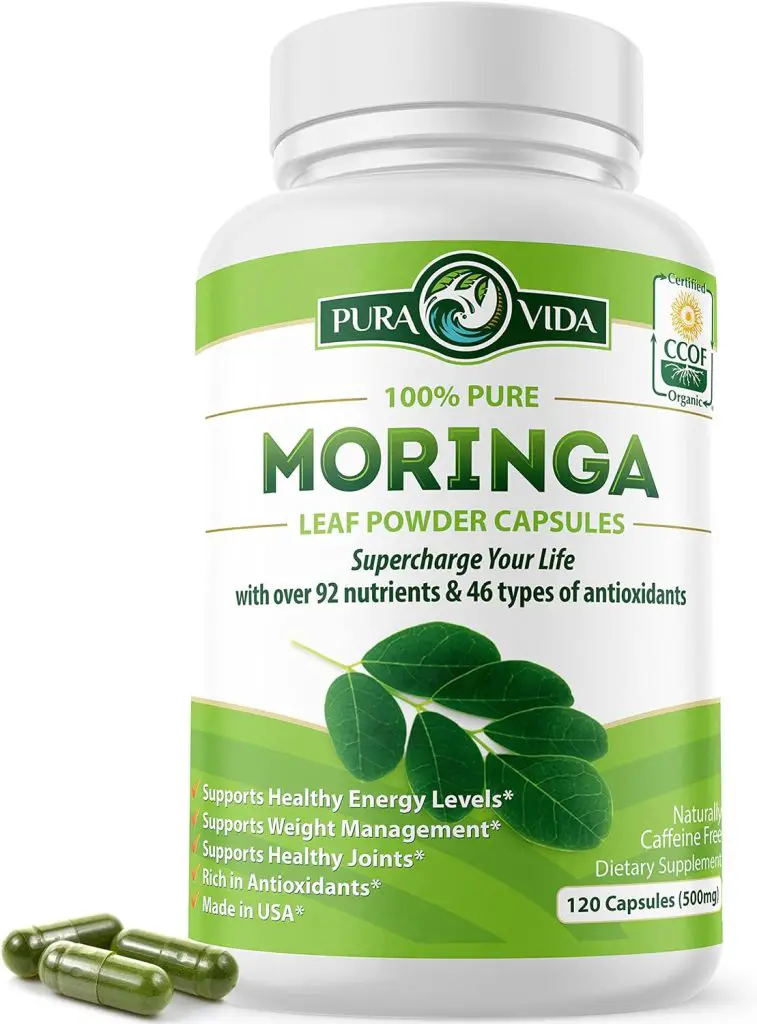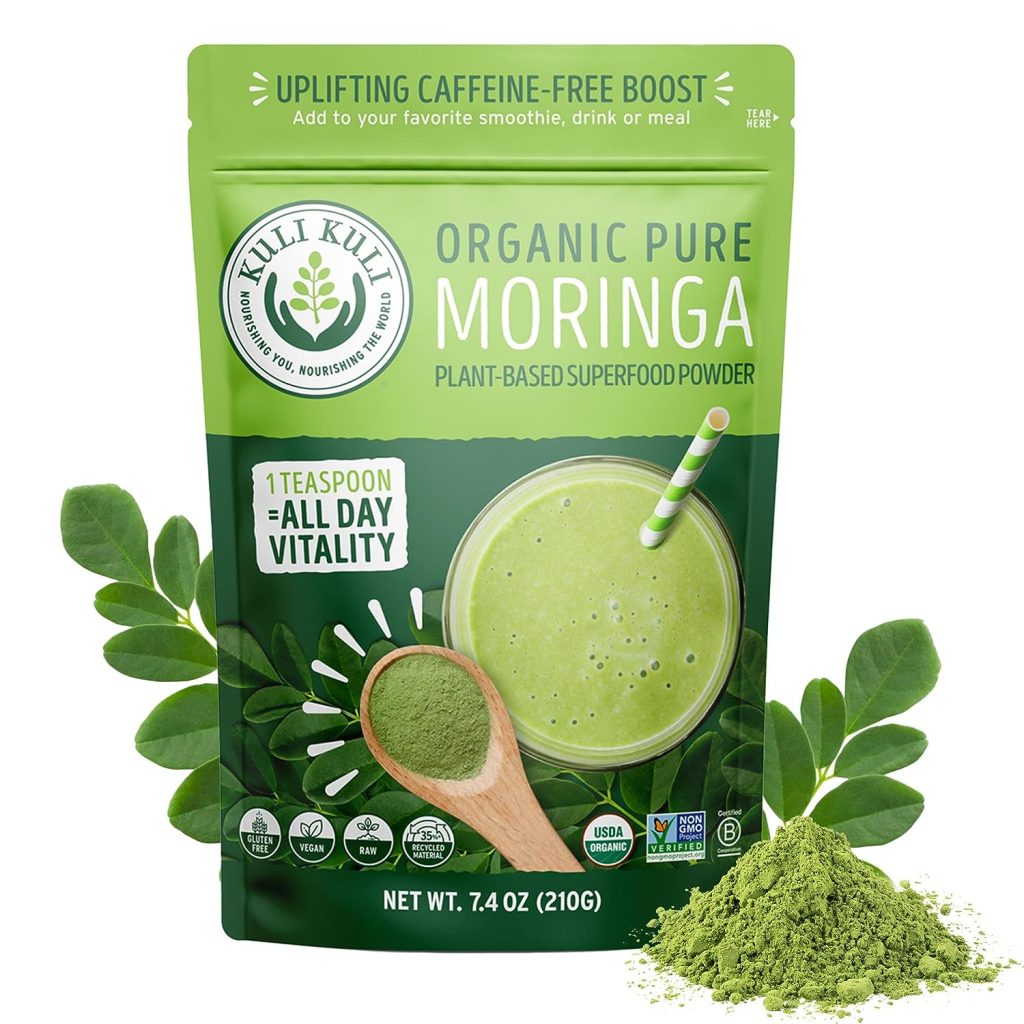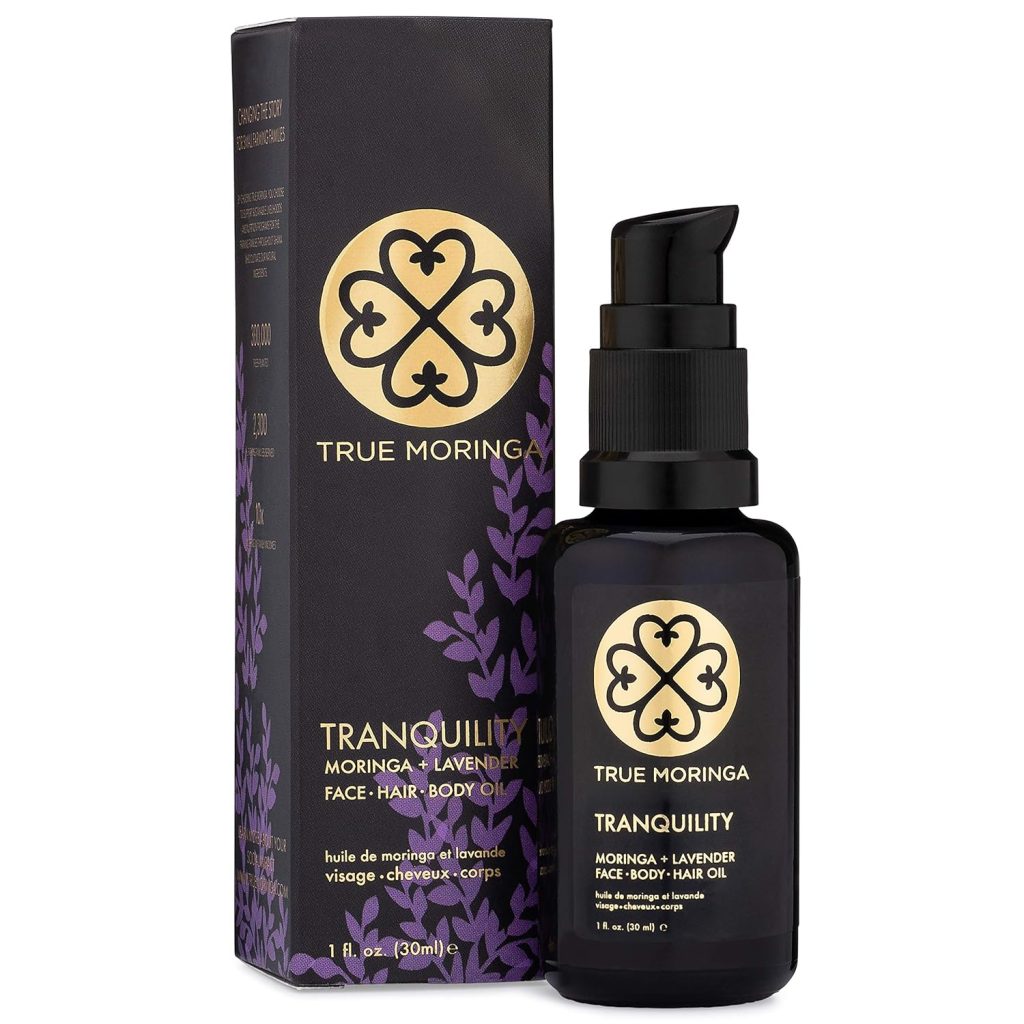You might have heard, “Diabetes is chronic, and you can’t get rid of it,” this is true. You can’t get rid of Type 2 diabetes. However, you can take it to complete remission by controlling your blood sugar levels and body weight management. If you have reached here by now, you know how your diet can do wonders to help you achieve a balanced blood glucose.
Certain foods benefit you with blood glucose management, and Moringa is one of them. A diabetic patient witnesses weak metabolism, inflammation, and low blood sugar regulation. Moringa plant has promising benefits when it comes to managing these symptoms. It takes a small amount of Moringa to help you manage diabetes along with your medication. However please note that we recommend you consult with your doctor first before consuming Moringa with your medication.
When you consume Moringa, it can be in the form of a powder, or it can be in capsules, or it can be in your essential oils. There are numerous ways to use the Moringa plant in your routine!
Be sure to check out our article on our top 6 Moringa powders that we recommend in 2024!
Can Moringa Help Manage Diabetes? The Benefits Of Moringa
According to Marc O’Meara, the senior nutritionist at Mass General Brigham, our foods are either processed or rich in sugars. These seemingly easy foods have carbs that are hard to break and accumulate to increase blood glucose.
There are ways one can modify their diet with meaningful changes, like replacing processed sugars with natural sugar but in low amounts or replacing carbs with healthy fats. However, the diet plan for a diabetic varies from person to person as every individual goes through different symptoms or levels of diabetes. For example, diabetic patients can use Pura Vida Moringa Capsules and their regular diet plans.
At the same time, the Moringa plant has numerous benefits for patients with diabetes and can be incorporated into any diet plan. Moringa Oleifera, often called the “miracle tree,” has several bioactive compounds that contribute to blood sugar management through various mechanisms that we will discuss below. Here are the potential benefits of the Moringa plant for patients with diabetes.
1. Antioxidant Properties Of Moringa For Diabetes
Moringa extracts have antioxidative properties like Vitamin C, flavonoids, and phenolic acids, which are evident by research. Now that this miracle tree has antioxidants, let’s see how it works!
In diabetics, high blood sugar produces excessive free radicals, leading to oxidative stress. These free radicals damage cells and tissues throughout the body, contributing to complications like a weakened immune system that makes the body susceptible to infections, which can be especially dangerous for diabetics.
At the same time, oxidative stress can damage your blood vessels and promote inflammation that increases the risk of heart attacks and strokes. Therefore, it is suggested that diabetics must add Kuli Kuli Moringa Powders to their routine so that it counters the oxidative stress from within.
To counter this, Moringa helps individuals by neutralizing these free radicals and minimizing their damaging effects.
2. Moringa’s Influence on Insulin Sensitivity
Some studies affirm that the Moringa plant can double the production of insulin expression while decreasing the insulin level in diabetes mellitus. However, there needs to be more research to back this up. Therefore, we will tell you what we know so far.
Moringa extracts like chlorogenic acid (CGA) are thought to activate AMPK, an enzyme regulating cellular energy metabolism. Increased AMPK activity improves glucose uptake into cells, potentially lowering blood sugar levels and enhancing insulin sensitivity.
At the same time, some bioactive compounds in Moringa may modulate insulin signaling pathways, increasing the cells’ responsiveness to insulin and facilitating glucose uptake.
These are just a few ways we can say Moringa can help with insulin sensitivity in diabetic patients. Did you know people often take Moringa oil to help manage insulin production? The right amount in your diet will help you through it all! The Moringa oil we recommend is by True Moringa.
3. Anti-inflammatory Effects Of Moringa Plant
Chronic inflammation adds to insulin resistance and type 2 diabetes development.
Moringa contains several anti-inflammatory compounds, including Flavonoids like Quercetin, kaempferol, and myricetin, and Phenolic acids like Chlorogenic and gallic acid. These compounds may work in various ways to combat inflammation in diabetics.
First of all, they work to inhibit inflammatory pathways. For example, they can suppress the activity of proteins like NF-?B and COX-2, which play key roles in inflammatory processes. Then, Moringa is known to reduce pro-inflammatory markers as it can decrease the production of inflammatory cytokines like TNF-? and IL-6, which contribute to tissue damage and insulin resistance.
Moreover, research suggests Moringa may favorably alter gut bacteria, promoting a healthier gut environment and potentially reducing systemic inflammation linked to diabetes.
4. Improved Glucose Metabolism With Moringa Extracts
Did you know Moringa extracts may inhibit enzymes involved in carbohydrate breakdown? Research shows that Moringa extract helps improve glucose tolerance in the body. It breaks down carbs like alpha-amylase and sucrase, leading to slower sugar absorption and potentially preventing blood sugar spikes after meals.
Its extracts are known to improve glucose metabolism in diabetic patients. To elaborate on how it works in the body, Moringa may contain compounds like alpha-amylase and sucrase inhibitors, which slow down the breakdown of complex carbohydrates in the intestine.
This reduces the rate of glucose absorption into the bloodstream, potentially preventing blood sugar spikes after meals.
As discussed earlier, it might activate AMPK, an enzyme regulating cellular energy metabolism. This can improve insulin sensitivity by enabling cells to absorb glucose more readily, lowering blood sugar levels.
5. Increased Glycogen Storage With Moringa Extracts
Several mechanisms suggest how Moringa might increase glycogen storage in diabetic patients. The extracts from Moringa may contain compounds that activate glycogen synthase, the enzyme responsible for converting glucose into glycogen for storage in muscles and the liver.
This increased activity could lead to more efficient glucose removal from the bloodstream and better glycogen reserves. As discussed earlier, Moringa might improve insulin sensitivity, allowing cells to utilize glucose more effectively for energy production and storage as glycogen.
The oxidative stress, prevalent in diabetes, can damage glycogen synthase and impair glycogen storage. Moringa’s antioxidant properties may combat this damage, supporting healthy glycogen synthesis. So, this is how Moringa helps with increasing glycogen storage.
How Much Moringa Should A Diabetic Take?
The magical tree, Moringa, is known to have many benefits, and one of them is to balance your blood glucose level, making it a divine medicine for diabetics. However, this traditional source of medicine is not a substitute for conventional diabetes. As far as our research goes, there is currently no established safe and effective dosage of Moringa for diabetics.
However, research by Biomed Res Int. proves that “the lower dosage of Moringa may result effectively when used as a supplement for people with diabetes.” Therefore, it is recommended that a diabetic should consume 50 mg of Moringa per body weight in kgs. For example, if your body weight is 70 kg (154 pounds), you should take 3500 mg of Moringa as a supplement.
This amount does not apply to every diabetic, as every person’s condition differs. That’s why you should consult your doctor to check its compatibility with your existing treatment plan.
What Should Diabetics Avoid When Taking Moringa?
Studies have detected low levels of elements like lithium, aluminum, silicon, and strontium in the leaves of Moringa. These metals have nothing to do with biological functions and are known to be toxic to human health. Here are some concerns related to some of these elements:
- Aluminum is a high-risk element and can even result in deaths for people with kidney diseases, which is more prevalent in diabetics.
- Lithium is used in certain medications, but its high intake can be toxic.
Besides, here are a few points that we recommend diabetics consider before adding Moringa to their routines:
- It is not entirely safe to use Moringa as there is no direct scientific research for diabetics. Therefore, consult your doctor for guidance; they know how much Moringa will be safe for you.
- Being a diabetic, you might be on some medications, especially those affecting blood sugar levels. So, there are chances that Moringa may interact with those medications. Better consult the professional to ensure your safety.
- We can’t deny that Moringa has numerous benefits for diabetics, but it should never be seen as a replacement for conventional diabetes management practices.
Conclusion
Moringa offers many benefits as it has a rich nutritional profile. We must recognize Moringa’s impressive nutritional profile. Its leaves have vitamins A, C, and B complex, minerals like calcium, iron, potassium, and essential amino acids, exceeding the content of many common vegetables. We do, however, recommend to consult with your doctor first before incorporating Moringa into your diet if you are on any medications. Besides that, what are you waiting for? Add Moringa extracts to your daily routine!

Tara is a nutrition enthusiast with a passion for superfoods like Moringa and pomegranate. She has over 10 years of experience as a professional writer and researcher and specifically covers topics around the health benefits of superfoods, and provides readers with valuable knowledge and insights.




